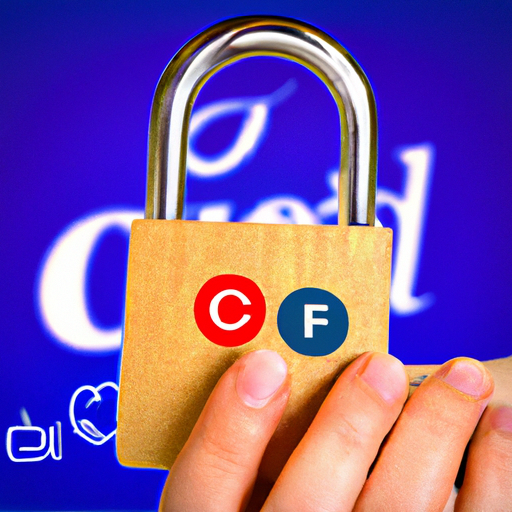In today’s digital age, social media has become an integral part of our lives, including the healthcare industry. However, with its advantages come certain legal obligations and compliance requirements that healthcare providers must adhere to. This article aims to provide businesses and business owners in the healthcare sector with a comprehensive understanding of social media compliance. By exploring the key regulations, potential risks, and best practices, you will gain valuable insights into how to navigate this ever-evolving landscape. Whether you are a healthcare professional, business owner, or simply curious about the topic, read on to discover the importance of social media compliance and how it can protect your organization’s reputation and ensure privacy and security.

Understanding Social Media Compliance in Healthcare
In today’s digital age, social media plays a significant role in how healthcare organizations interact and engage with their patients and the wider community. However, the use of social media in the healthcare industry must be approached with caution and in compliance with strict regulations, such as the Health Insurance Portability and Accountability Act (HIPAA). Understanding social media compliance is crucial for healthcare organizations to safeguard patient privacy, maintain professional integrity, and avoid any legal repercussions.
Why Social Media Compliance is Important for Healthcare Organizations
Social media compliance is of utmost importance for healthcare organizations due to the sensitive and personal nature of the information involved. Healthcare providers deal with protected health information (PHI), which includes any individually identifiable health information. This information must be protected to ensure patients’ privacy and confidentiality. Failure to comply with social media regulations can result in significant legal and reputational consequences for healthcare organizations.
Defining Social Media Compliance in the Healthcare Industry
Social media compliance in the healthcare industry refers to the adherence to laws, regulations, and ethical standards when using social media platforms. It involves implementing policies and procedures that govern the appropriate use of social media by healthcare professionals and employees while protecting patient privacy and confidentiality. Social media compliance also encompasses ensuring the accuracy and authenticity of information shared on these platforms and mitigating potential risks associated with their use.
The Impact of Non-Compliance in Healthcare Social Media Use
Non-compliance with social media regulations can have severe consequences for healthcare organizations. Firstly, it can result in violations of patient privacy and confidentiality, which are key principles of healthcare ethics. These violations can lead to legal action, damage to the organization’s reputation, loss of patient trust, and potential financial penalties. Moreover, non-compliance can result in the dissemination of incorrect or misleading information, negatively impacting patient care and causing harm to individuals’ health.

HIPAA and Social Media
What is HIPAA?
The Health Insurance Portability and Accountability Act (HIPAA) is a federal law that sets the standards for protecting sensitive patient health information. Its main objectives are to ensure the privacy, security, and integrity of individually identifiable health information and to enable the portability of health insurance coverage. HIPAA applies to covered entities, which include healthcare providers, health plans, and healthcare clearinghouses, as well as their business associates who handle PHI.
HIPAA Compliance for Social Media Use in Healthcare
Healthcare organizations must carefully navigate social media platforms to comply with HIPAA regulations. HIPAA requires covered entities to obtain patient authorization before disclosing any PHI on social media platforms. It is essential to obtain explicit consent from patients before sharing any health-related information, including photos, videos, or any form of identifying information. Organizations must also implement policies and procedures that govern employee use of social media to ensure compliance with HIPAA regulations.
Understanding Protected Health Information (PHI) on Social Media
Protected Health Information (PHI) includes any individually identifiable health information that is transmitted or maintained in any form, such as electronic, paper, or oral. This can include information related to an individual’s past, present, or future physical or mental health condition, treatment, or payment for healthcare services. When it comes to social media, healthcare organizations need to be vigilant in protecting PHI and avoiding its unauthorized disclosure or use.
Developing a Social Media Compliance Policy
Why a Compliance Policy is Essential
Having a comprehensive social media compliance policy is vital for healthcare organizations to ensure that all employees understand the rules and regulations governing the use of social media platforms. A well-crafted policy serves as a guide for employees, outlining the acceptable uses of social media, the protection of patient privacy, and the mitigation of potential risks associated with these platforms. A compliance policy ensures that healthcare organizations maintain professionalism and ethical conduct on social media and reduces the likelihood of HIPAA violations.
Creating a Strong Social Media Compliance Policy
When creating a social media compliance policy, healthcare organizations should consider the following key elements:
-
Clearly define the purpose and scope of the policy: The policy should state the organization’s commitment to compliance with HIPAA regulations and the protection of patient privacy and confidentiality. It should outline the platforms and accounts covered by the policy.
-
Staff responsibilities and guidelines: Clearly define the roles and responsibilities of employees in using social media platforms. Provide guidelines on what is considered appropriate content and behavior and clearly state the consequences of policy violations.
-
Consent and authorization: Specify the procedures for obtaining patient consent and authorization before sharing any health-related information on social media platforms.
-
Training and education: Implement regular training programs to educate employees about social media compliance regulations, the organization’s policy, and best practices for using social media in a healthcare setting.
-
Incident reporting and response: Establish procedures for reporting and responding to potential breaches or violations of the social media compliance policy. These procedures should include the investigation of incidents, disciplinary actions, and steps to remediate any harm caused.
Employee Training and Education on Social Media Compliance
Training and educating employees on social media compliance is crucial for the effective implementation of a compliance policy. Healthcare organizations should provide regular training programs that cover topics such as HIPAA regulations, the organization’s social media compliance policy, privacy considerations, and the potential risks and consequences of non-compliance. Training programs can be conducted through in-person sessions, online modules, or a combination of both to ensure that employees have a thorough understanding of their responsibilities when using social media platforms.
Best Practices for Healthcare Social Media Compliance
Monitoring and Managing Social Media Accounts
Proactive monitoring and management of social media accounts are essential to ensure compliance with regulations and maintain a positive online presence. Healthcare organizations should implement tools and procedures to monitor social media platforms for any potential privacy breaches or policy violations. Regular monitoring allows organizations to quickly identify and address any inappropriate content, potential HIPAA violations, or negative interactions with patients or the public.
Ensuring User Privacy in Social Media Interactions
Protecting user privacy is a fundamental aspect of social media compliance in healthcare. Healthcare organizations should prioritize obtaining patient consent before engaging in any communication or interaction on social media platforms. Organizations should also ensure that private messaging options, if used, comply with HIPAA regulations and are secure and encrypted. It is necessary to establish and communicate clear guidelines to employees regarding the appropriate handling of patient inquiries, complaints, or any personally identifiable information shared on social media.
Maintaining Transparency and Authenticity on Social Media
Transparency and authenticity are key principles for healthcare organizations when using social media platforms. Organizations should always clearly identify themselves and their affiliation, making it evident that any content shared represents the organization’s views or opinions. Healthcare professionals should practice transparency when sharing health information, disclosing any conflicts of interest, and clearly distinguishing between personal and professional social media accounts. By maintaining transparency and authenticity, healthcare organizations can build trust with their audience while reducing the risk of potential legal and ethical issues.
Avoiding Social Media Pitfalls in Healthcare
Understanding the Risks of Social Media Use in Healthcare
While social media can be a powerful tool for healthcare organizations, it also poses various risks that should be carefully considered. One of the main risks is the potential violation of patient privacy and confidentiality. Healthcare professionals must be cautious about sharing any identifiable health information, even unintentionally, as it can lead to significant legal and reputational consequences. Social media also opens the door to potential negative public feedback, misinformation, and the dissemination of unverified medical advice. Understanding these risks is crucial for healthcare organizations to develop effective strategies to mitigate and avoid these pitfalls.
Preventing HIPAA Violations on Social Media
Preventing HIPAA violations on social media requires strict adherence to regulations and thorough employee education. Healthcare organizations should enforce the use of strong privacy settings on social media accounts to control who can access and view posts. Employees should undergo training on what constitutes protected health information and the potential risks associated with its disclosure on social media. Additionally, organizations should have strict policies in place to guide employees on the appropriate use of social media platforms and to prevent any inadvertent HIPAA violations.
Addressing Negative Public Feedback on Social Media
Negative public feedback on social media can be challenging for healthcare organizations to manage effectively. However, it is crucial to address these concerns promptly and professionally. Organizations should establish clear procedures for responding to negative feedback, providing empathetic and helpful responses, and offering solutions. It is important to handle negative feedback with transparency, prioritizing patient satisfaction and ensuring a positive online reputation. Organizations should avoid engaging in arguments, defend against false claims, or violate patient privacy when addressing negative feedback.

Legal Considerations for Healthcare Social Media Use
Intellectual Property Rights on Social Media
Healthcare organizations must be aware of intellectual property rights when using social media platforms. Intellectual property includes copyrighted material, trademarks, and trade secrets. Organizations should ensure that they have the necessary rights or permissions to use any third-party content on their social media accounts. Furthermore, organizations should protect their own intellectual property and register trademarks for their brand, logos, or any distinctive elements associated with their organization.
Advertising and Marketing Regulations on Social Media
Advertising and marketing regulations apply to healthcare providers using social media platforms. Organizations should comply with the guidelines set by regulatory bodies such as the Federal Trade Commission (FTC) when posting advertisements, promoting products or services, or making health claims. These regulations protect consumers from false or misleading advertising. Organizations should ensure that the information shared on social media platforms is accurate, supported by evidence, and not deceptive.
Patient Consent and Privacy Laws on Social Media
Patient consent and privacy laws play a crucial role in healthcare social media use. Organizations must obtain explicit consent from patients before sharing any health-related information on social media platforms. It is important to clearly inform patients about the potential risks and consequences of sharing their personal information on social media. Additionally, organizations must comply with privacy laws, such as HIPAA, by ensuring that patient information is secure, encryption measures are in place, and appropriate rights of access and disclosure are followed.
Using Social Media for Healthcare Marketing
The Benefits of Social Media Marketing in Healthcare
Social media marketing offers numerous benefits for healthcare organizations. It allows for targeted and cost-effective marketing strategies, enabling organizations to reach a wider audience and engage with potential patients. Social media platforms provide an opportunity to showcase expertise, share valuable health information, and establish thought leadership in the industry. Moreover, social media facilitates two-way communication, allowing organizations to receive feedback, address patient queries, and improve their services based on valuable insights.
Effective Strategies for Healthcare Social Media Marketing
To maximize the effectiveness of social media marketing in healthcare, organizations should consider the following strategies:
-
Define goals and target audience: Determine specific marketing objectives, whether it’s increasing brand awareness, driving website traffic, or patient acquisition. Understand the target audience and tailor content to meet their needs and preferences.
-
Create engaging content: Produce high-quality and relevant content that educates, informs, and entertains the audience. Use a variety of formats, such as articles, videos, infographics, or live streaming, to keep the content engaging and shareable.
-
Utilize influencer partnerships: Collaborate with influential individuals or organizations in the healthcare industry to expand reach, credibility, and brand exposure. Engage in partnerships that align with the organization’s values and goals.
-
Use analytics and data-driven insights: Regularly analyze social media metrics and data to understand audience behavior, content performance, and campaign effectiveness. Use these insights to refine marketing strategies and optimize engagement.
Measuring the Success of Social Media Marketing in Healthcare
Measuring the success of social media marketing efforts in healthcare is essential to evaluate the return on investment and make informed decisions. Key performance indicators (KPIs) to consider when measuring success include:
-
Reach and engagement: Measure the number of followers, likes, comments, shares, and clicks on social media content to determine audience engagement and the reach of the organization’s messages.
-
Website traffic and conversions: Monitor the amount of traffic social media referrals bring to the organization’s website and track conversions, such as appointment bookings, newsletter sign-ups, or contact form submissions.
-
Brand sentiment and reputation: Assess the sentiment and feedback received from social media interactions to gauge the organization’s brand reputation. Monitor online reviews and mentions to understand how the organization is perceived by the public.
-
Return on investment (ROI): Calculate the financial impact of social media marketing by comparing the cost of campaigns and resources invested to the resulting revenue generated or cost savings achieved.
Social Media Compliance Tools and Resources for Healthcare
Social Media Compliance Software and Services
Healthcare organizations can benefit from using social media compliance software and services to facilitate compliance efforts. These tools often offer features such as content filtering, monitoring and archiving of social media accounts, automated compliance checks, and policy violation alerts. By utilizing these tools, organizations can efficiently manage their social media presence while mitigating the risks associated with non-compliance.
Online Resources and Guidelines for Healthcare Professionals
Various online resources and guidelines are available to help healthcare professionals navigate social media compliance. Organizations such as the American Medical Association (AMA) and the American Nurses Association (ANA) provide guidelines and best practices for professionals using social media. Additionally, the Federal Trade Commission (FTC) offers resources on advertising and marketing regulations applicable to social media platforms.
Industry Associations and Collaborative Forums
Industry associations and collaborative forums can provide valuable insights and support for healthcare organizations seeking social media compliance guidance. These organizations often host conferences, webinars, and networking events, where professionals can learn from industry experts and share best practices. Participating in these associations and forums allows organizations to stay up to date with the latest trends, regulations, and compliance strategies within the healthcare industry.
Frequently Asked Questions about Social Media Compliance for Healthcare
What are the consequences of non-compliance with HIPAA on social media?
Non-compliance with HIPAA regulations on social media can have severe consequences for healthcare organizations. Violations can result in legal action, substantial penalties, damage to the organization’s reputation, and loss of patient trust. Compliance failures can also lead to the unauthorized disclosure of protected health information (PHI), which can have detrimental effects on individuals’ privacy and potentially harm their health.
How can healthcare organizations monitor and manage social media accounts effectively?
Healthcare organizations can effectively monitor and manage social media accounts by implementing tools and procedures to monitor platforms regularly. This involves monitoring content, comments, and messages to address any potential privacy breaches, policy violations, or negative interactions promptly. Utilizing social media management software or services can streamline the monitoring process by providing automated compliance checks and alerts, ensuring a proactive approach to social media account management.
Can healthcare providers advertise their services on social media?
Healthcare providers can advertise their services on social media, but they must comply with applicable advertising and marketing regulations. Organizations should follow guidelines set by regulatory bodies such as the Federal Trade Commission (FTC) to ensure that their advertisements are accurate, supported by evidence, and not deceptive. It is important to balance promotional content with educational and informative material to provide value to the audience and maintain ethical standards.
Is patient consent required before sharing any health-related information on social media?
Yes, patient consent is required before sharing any health-related information on social media platforms. Healthcare organizations must obtain explicit consent from patients to share their information, including any identifiable health information, on social media. Consent should be obtained in writing or through electronic means, clearly outlining the purpose, scope, and potential risks of sharing the information. It is crucial to respect patient privacy and maintain confidentiality when using social media for healthcare purposes.
Are there any legal limitations on healthcare providers using social media for marketing?
Healthcare providers must comply with legal limitations when using social media for marketing. These limitations include adhering to regulations set by bodies such as the Federal Trade Commission (FTC), which govern advertising and marketing practices. Healthcare providers should ensure that their marketing content is accurate, supported by evidence, and not deceptive. Additionally, they must protect patient privacy and confidentiality, obtaining patient consent before sharing any information on social media platforms.
